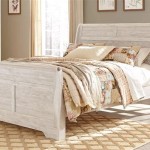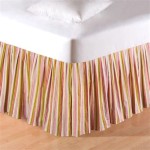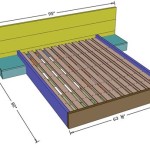Can You Use Metal for Raised Garden Beds?
Raised garden beds offer numerous benefits, from improved drainage to enhanced soil quality. While wood is often the go-to material for construction, metal is a viable alternative that presents distinct advantages and disadvantages. Whether metal is suitable for your raised garden beds depends on several factors, including your budget, desired aesthetic, and the climate in your region.
Pros of Metal Raised Garden Beds
Metal offers several advantages that make it a compelling option for constructing raised garden beds:
- Durability: Metal is inherently strong and resistant to rot, decay, and insect infestation. Unlike wood, it won't succumb to the elements, ensuring longevity and minimal maintenance.
- Low Maintenance: Metal requires minimal upkeep. A simple cleaning with soap and water is usually sufficient to maintain its appearance.
- Variety of Materials: Metals like steel, aluminum, and galvanized steel offer different properties and aesthetics to choose from. Steel is sturdy but prone to rust, while aluminum is lightweight and corrosion-resistant. Galvanized steel provides a protective coating against rust.
- Heat Resistance: Metal can withstand higher temperatures than wood, making it suitable for areas with extreme climates. It also absorbs less heat, minimizing the risk of scorching sensitive plants.
- Modern Aesthetics: Metal can create a sleek and contemporary look in your garden, adding a touch of modern design. It can complement various garden styles and architectural features.
Cons of Metal Raised Garden Beds
While metal offers many benefits, it also presents some challenges:
- Cost: Metal can be more expensive than wood, especially for larger beds. However, its durability and longevity may offset the initial investment over time.
- Heat Absorption: Metal can become very hot in direct sunlight, potentially affecting soil temperatures and plant growth, especially in hot climates. It's essential to consider shading options or using a layer of mulch to mitigate this effect.
- Rust: Steel, if not properly treated, can rust, eventually compromising its structural integrity. Galvanized steel offers better rust resistance but may still require occasional maintenance. Aluminum is generally more resistant to corrosion but can be prone to scratches and dents.
- Limited Flexibility: Metal is less flexible than wood, making it more challenging to create intricate shapes or curved designs. It may require more complex construction techniques.
- Potential for Cold: In colder climates, metal can conduct and radiate cold, potentially affecting the soil temperature and hindering plant growth. You might need to consider additional insulation for your beds during winter.
Factors to Consider When Choosing Metal for Raised Garden Beds
Choosing the right material for your raised garden beds involves a careful assessment of several factors:
- Budget: Assess your budget and consider the long-term costs associated with each material. While metal might be more expensive initially, its longevity can offset the price over time.
- Climate: Consider the prevailing climate in your area. If you live in a hot climate, metal's heat absorption may be a concern. In colder climates, its ability to conduct cold could affect plant growth.
- Aesthetics: Consider your desired aesthetic and how the material will complement your garden's overall design.
- Maintenance: Evaluate your willingness to maintain the material. Metal requires less maintenance than wood, but it still needs occasional cleaning and rust prevention.
- Plant Selection: Consider the plants you intend to grow. Some plants are sensitive to extreme temperatures, so you might need to make adjustments to the bed construction or location based on your chosen species.
Ultimately, the decision of whether to use metal for your raised garden beds is a personal one. By carefully weighing the pros and cons, considering your specific needs, and exploring various options, you can make an informed choice that benefits both your garden and your budget.

How To Make A Raised Garden Bed Last 25 Years With Plans Ptr

Galvanized Steel Raised Garden Beds Plans Tutorial Growfully

Metal Raised Garden Beds Vs Wood Vego

Raised Garden Beds Galvanized Metal Vs Wood Huw Richards

How To Make A Raised Garden Bed Last 25 Years With Plans Ptr

Building Our Raised Beds The Prairie Homestead

Raised Garden Bed Materials What S Good Epic Gardening

Raised Garden Bed Materials Figure Out Your Diy Setup

5 Misconceptions Of Metal Garden Beds Why They Are Safe Sunnydaze Decor

How To Build A Metal Raised Garden Bed Mk Library







